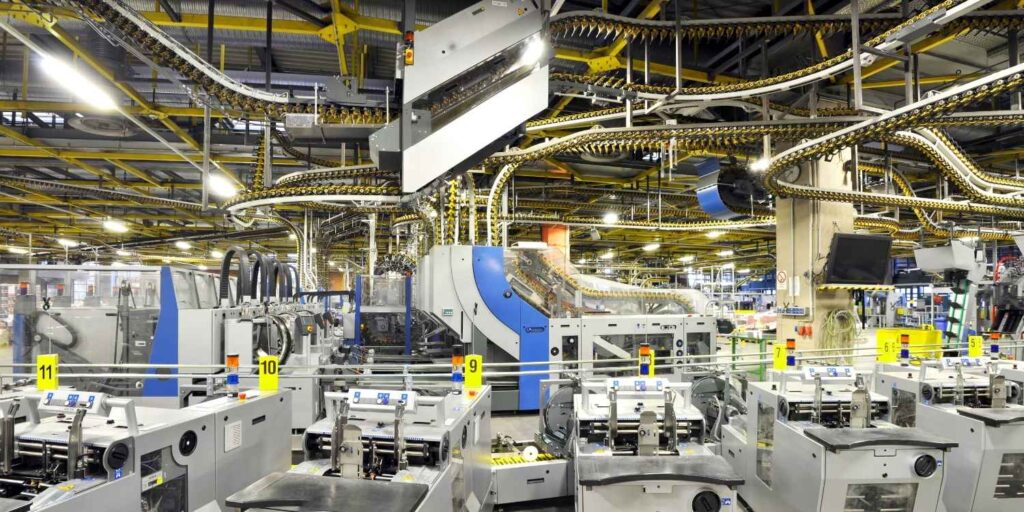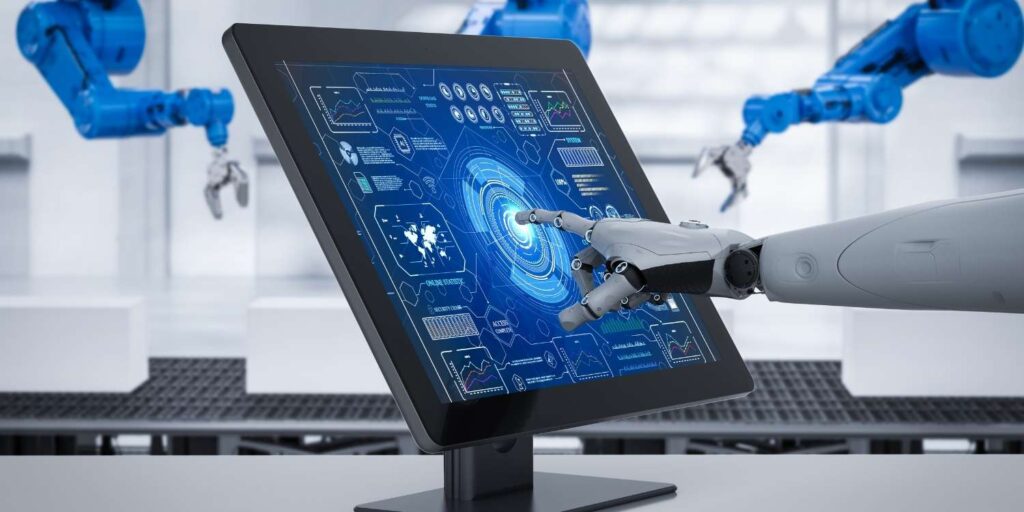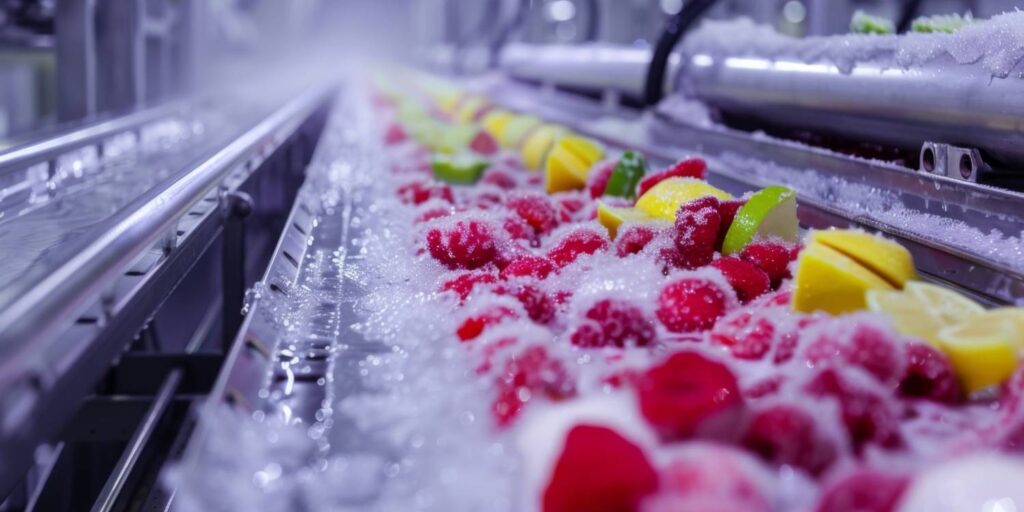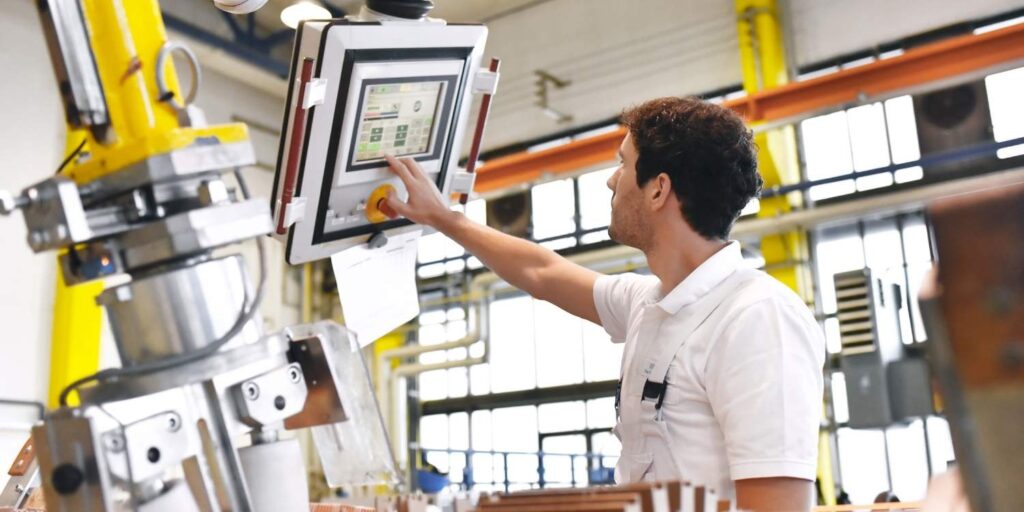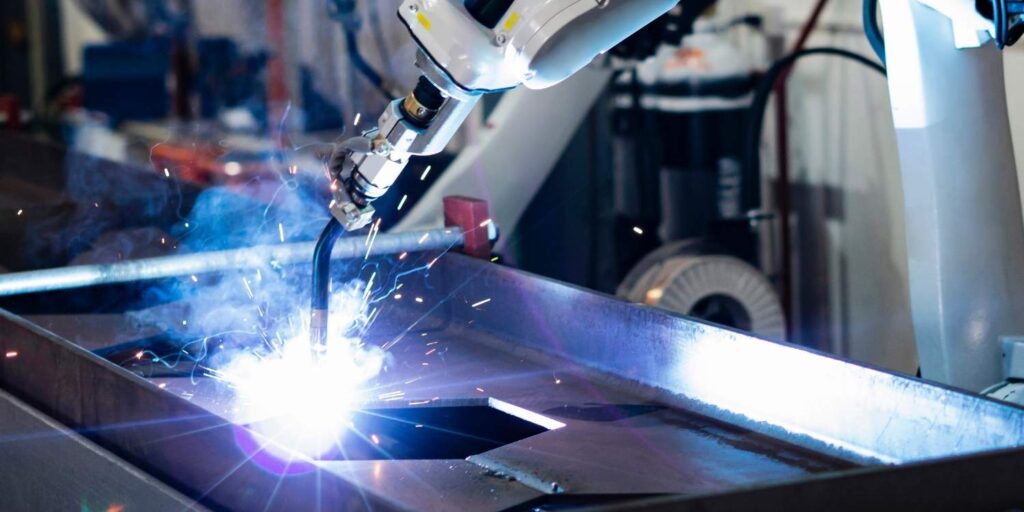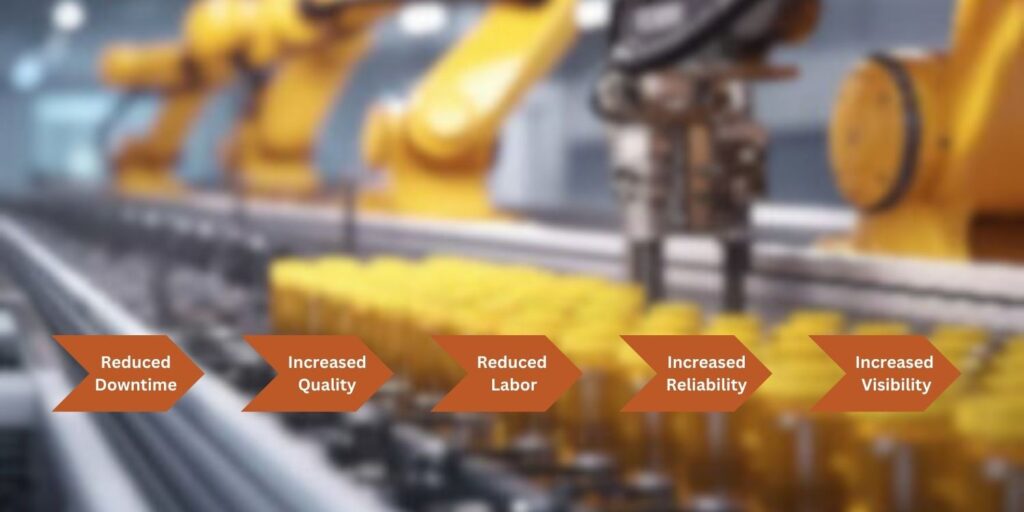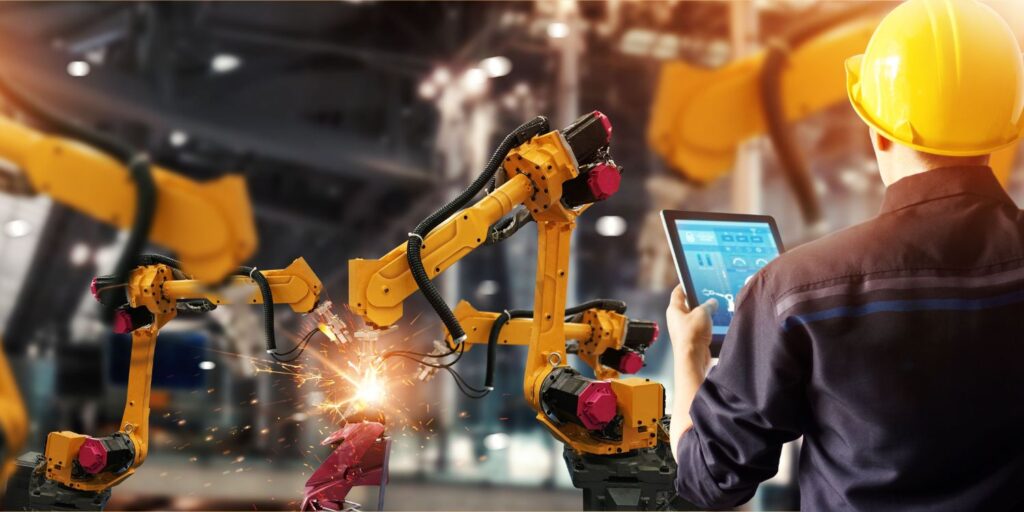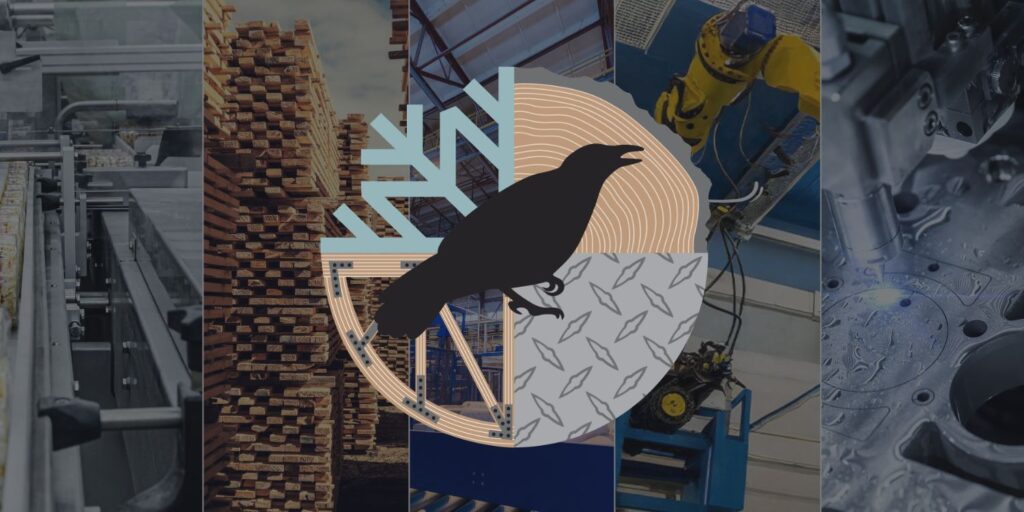Posts Tagged ‘Machine Automation’
How Automated Machines Achieve Energy Efficiency
Achieving energy efficiency is a critical goal for modern industries, and automated machinery plays a key role in reaching that objective. Automated machines, using advanced technologies like VFDs (Variable Frequency Drives), PLC systems, and real-time monitoring tools, optimize energy consumption while enhancing operational performance. By incorporating intelligent systems, businesses can streamline production, reduce energy waste,…
Read MoreHow AI-Powered Automation is Transforming Industrial Processes
Maximizing efficiency, accuracy, and productivity is critical for industries striving to maintain a competitive advantage. AI-powered automation is revolutionizing industrial processes, providing smarter, more adaptive solutions that reduce the need for human intervention while enhancing overall performance. With artificial intelligence (AI), businesses can automate repetitive tasks, analyze vast amounts of data, and make real-time decisions…
Read MoreOptimizing for Continuous Process Manufacturing
Continuous process manufacturing is an uninterrupted production process where raw materials are transformed into finished products in a constant flow of production. Industrial automation in continuous manufacturing is prevalent in industries such as lumber, forestry, manufacturing, and cold storage, where continuous operations are essential for meeting demand and maintaining product quality. In these industries, improving…
Read MoreBenefits of PLC Programming in Automated Manufacturing
PLC (Programmable Logic Controller) programming has become a cornerstone of automated industrial processes. PLCs are widely used to automate machinery, control systems, and industrial equipment. The ability to customize a PLC system to control complex processes has revolutionized industrial automation, enabling manufacturers to improve productivity, reduce downtime, and enhance the overall efficiency of operations. Crow…
Read MoreAutomated Industrial Machinery: Improvements For Manufacturing
Material handling involves the movement, protection, storage, and control of materials throughout the production process in industrial and manufacturing settings. It is a crucial element of operations, ensuring the efficient flow of raw materials, components, and finished products between various stages of production. Optimizing material flow with automated industrial machinery is an important part of…
Read MoreAutomated Industrial Machinery: Advancements in Manufacturing Efficiency
Automated industrial machinery has played a pivotal role in the evolution of the manufacturing and industrial sector, boosting production, quality, and efficiency. Automation technology has redefined how industrial operations are managed, moving from manual processes to smart, interconnected systems. Manufacturers are benefiting from faster, more accurate, and more reliable machinery with various control solutions such…
Read MoreThe Role of Machine Automation in Modern Manufacturing
Machine automation has revolutionized industrial operations, driving efficiency, improving safety, and enhancing product quality across sectors. By automating repetitive tasks and optimizing complex processes, businesses are better equipped to meet the growing demands of modern manufacturing. At Crow Engineering, we specialize in designing and implementing advanced machine automation solutions customized for various industries such as…
Read MoreUnleashing the Power of AI in the Manufacturing Industry- Infographic
There’s a clear hierarchy: safety, environment, quality, production. Focusing on safety enhances all other aspects. If you eliminate safety risks, you improve quality and productivity. By using AI through the lens of safety, we can enhance every dimension of the operational process. Safety improvements naturally lead to better quality and increased productivity. It’s a chain…
Read More
